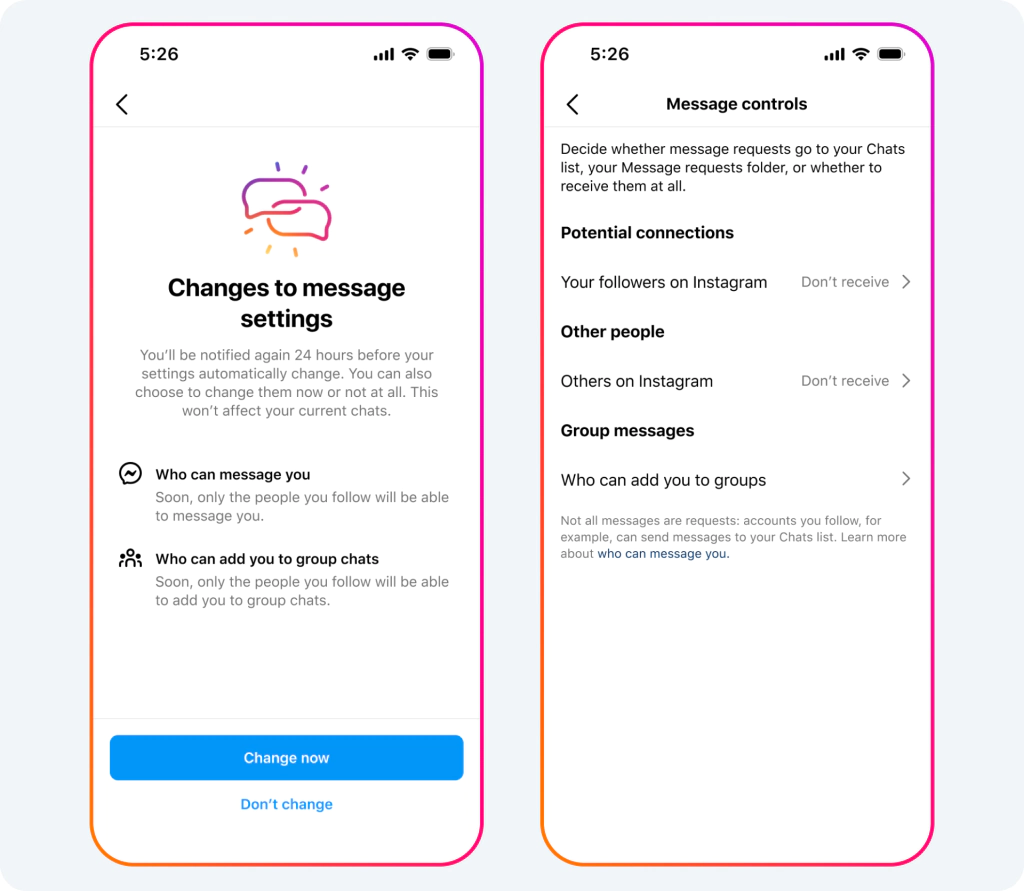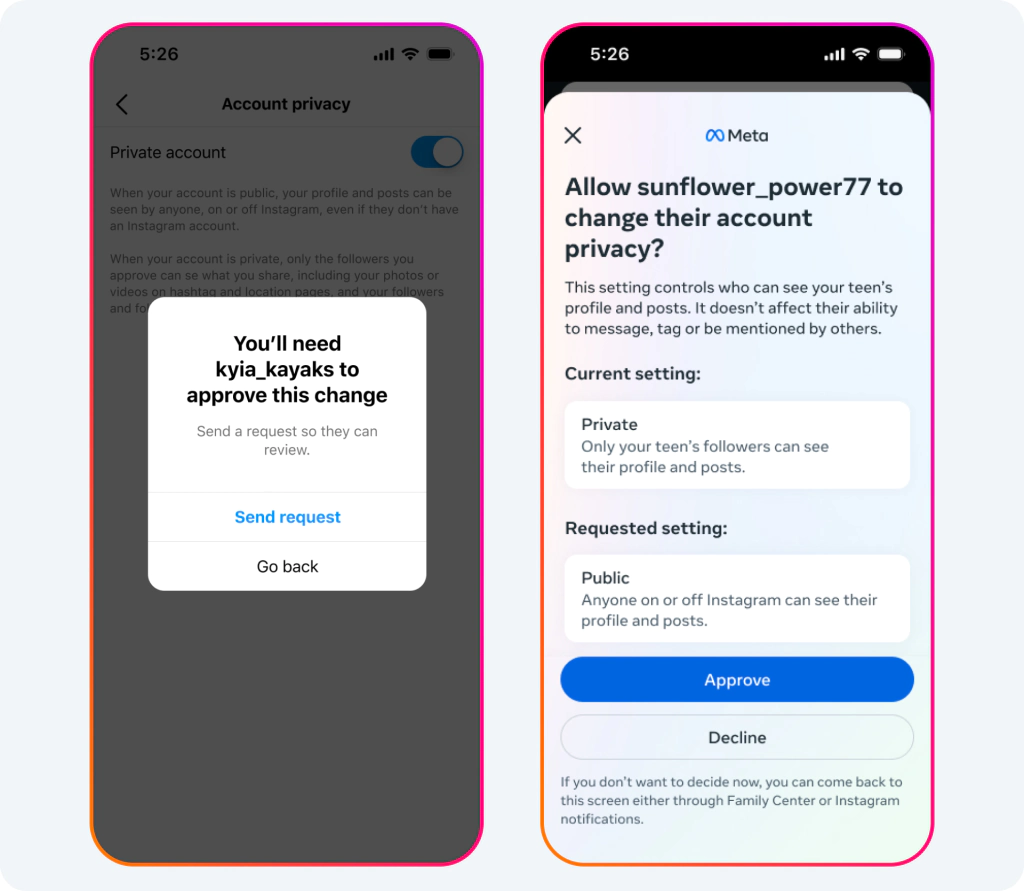
Major social media platforms are meant to be a family-friendly space. But sinister things lurk there.
And the most worrying about this is that, all users can be targets, including children. In order to protect these minors, Meta said that it defaults to blocking children from receiving messages from anyone they don’t follow or aren’t connected to, including other children.
In a blog post, Meta said that it's introducing the the "stricter message settings" for teens on both Instagram and Facebook.
Today we’re announcing an additional step to help protect teens from unwanted contact by turning off their ability to receive DMs from anyone they don’t follow or aren’t connected to on Instagram – including other teens – by default.

In the blog post, Meta said that it has developed more than 30 tools to features to help teens and their parents, and that the company has spent more than a decade in developing policies and technologies to address violating content and behavior.
Turning the feature on by default also means that Meta is making things simpler in order to break experience.
So here, before a teen can change certain settings, they cannot receive anything from strangers, and that they will first have to receive approval from their parents through the platform's parental supervision tools if they wish to change certain settings.
"We want teens to have safe, age-appropriate experiences on our apps," said Meta.
In the blog post, Meta also said that it wants the feature to also "help protect teens from seeing unwanted and potentially inappropriate images in their messages from people they’re already connected to, and to discourage them from sending these types of images themselves."
Meta said the default setting will apply to all children under the age of 16 or, in some countries, 18.
The company noted that it already blocks adults older than 19 from messaging teens who don’t follow them and blocks users from sending more than one text-only message to people who don’t follow them.
“Under this new default setting, teens can only be messaged or added to group chats by people they already follow or are connected to, helping teens and their parents feel even more confident that they won’t hear from people they don’t know in their DMs,” the blog post said.
Before this, Meta announced steps tp further limit teens’ ability to see potentially sensitive content on Instagram and Facebook, as well as new nudges to encourage teens to close Instagram at night.
The move came as Meta faces a lawsuit in New Mexico accusing it of failing to protect children on its platforms.
According to an unsealed legal filing related to the case, Meta estimates about 100,000 children using Facebook and Instagram receive online sexual harassment each day.

While the move can help, the company has to first deal with one big issue.
Meta has plans to encrypt direct messages on Facebook Messenger and Instagram, in order to preserve users' privacy. But this could place children and young people at risk.
In order to protect these minors, Meta has to find a way to 'read' messages, but without compromising privacy.
Meta has a setting called “communication safety” introduced by Apple in 2023, which detects nude photos and videos sent to children’s devices and automatically blurs them, but offers the child the option of viewing them or contacting a trusted adult.
A stronger version of this client-size scanning would translate to more aggressive report, enabling repeat offenders to be tracked and caught.
But Meta's plan stopped short, because it couldn't find a balance.
There is literally no sweet spot between juggling user privacy and protecting them.